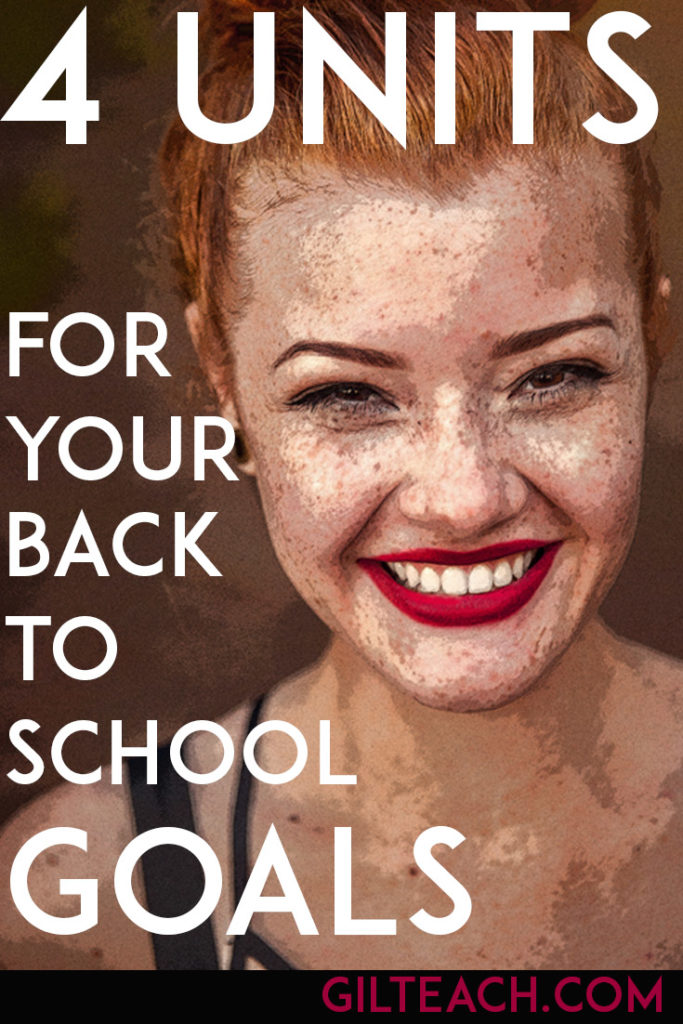4 Units to Achieve Back-To-School Goals

As a teacher, you might have just a few goals for the beginning of the school year: set the tone for your classroom; inspire students to work harder; establish rigor and expectations; teach students to think independently. Oh, and don’t forget win over students by showing them how much fun they’ll be having this year, and, when you teach high school, getting to know over 100 new people as fast as possible.
Seems simple, right?
Every year, I have tried something new at the beginning of the school year—in a seemingly never-ending search for the perfect way to accomplish all of my goals for the fall term. I’m sure that I will continue to tweak forever, but there are a few key elements that I always include at the beginning of the year and they are all included in my ELA Back-To-School Bundle.
These are the lessons that I use to accomplish my back-to-school goals.
A unit on growth mindset. One of my favorite things about being a teacher is seeing so many people get a chance to turn over a new leaf in September. In fact, I often joke that all students do their homework on the first day of school. Tapping into that drive by teaching students about growth mindset and the importance of perseverance is a fun but also important way to start off the year. So I spend some time intentionally exploring the brain science behind the theory of growth mindset, as well as having students reflect on challenges and failures in their own lives. They’ve got that back-to-school energy—I just have to make sure that they know how to direct it.
A personal essay unit. Everything in teaching goes better when I get to know the students—they trust me, I understand them, and we work better together. One of the best ways that I achieve that goal is through a personal essay unit. Of course, I will work hard to get to know my students as the year goes on, but having any hook or shortcut from the beginning helps a lot. Additionally, I have found that when I start off the year with a personal essay unit, students carry the lessons that they learn about good writing—how to show rather than tell, how to organize, how to come up with original ideas—into their writing for the rest of the year. And one more thing that I love about my personal essay unit is that it many of the sample essays, and much of what students end up writing, focus on failure, making it the perfect way to apply the lessons that students learn in the growth mindset unit.
A poetry analysis unit. One of the other problems in the beginning of the year is getting in enough assessment early on so I can see where students are at. Sure, there’s summer reading assignments or work, but I have found that what students complete over the summer is not a very good reflection of what they’ll do during the school year. By working in a poetry unit at the beginning of the year, I teach my students how to dig deeper and analyze as well as how to write about their ideas on a text—but we don’t have to get through a multi-page novel or play before we can do that. Also, I love poetry, and the sooner my students learn how fun it is to analyze a poem, the better!
An intentional introduction to reading logs. For years, I would simply assign reading logs to my students, assuming that they would know how to write what I wanted. But when I decided to take two full class days to write logs together, step-by-step, in class, I saw vast improvements in students’ work. From then on, I decided to spend the time at the beginning of every year to show students how to move through the steps that I had written. The message that they get right off the bat is that they’re going to have to think for themselves in my class, and that I care about their ideas and opinions.
In the end, if you can accomplish any of those goals then you and your students will be starting off the school year in a good place. If you are new to teaching, perhaps you should just pick one and make sure that you get that one down. And if you are going to pick just one, I’d make it getting to know students right away. The benefits of a connection with your students can’t be understated!
